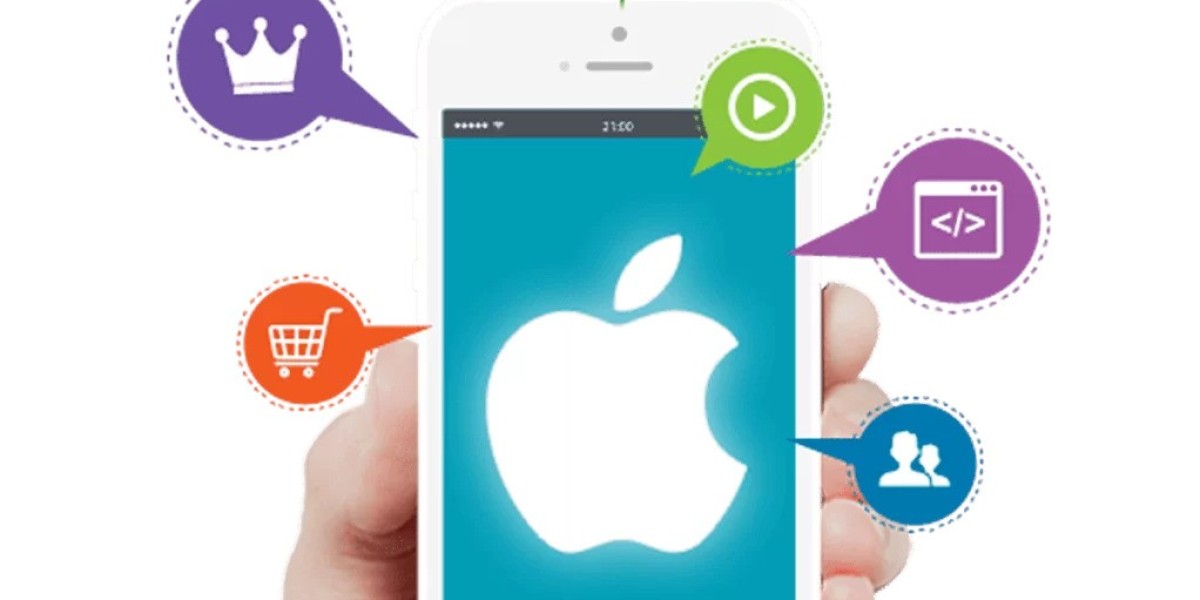The business world is evolving rapidly, and technology continues to play a pivotal role in shaping how companies engage with customers and operate efficiently. Among emerging digital trends, mobile apps have become critical for businesses looking to enhance their reach, improve customer experience, and drive revenue growth. In particular, iOS apps are positioned to transform business strategies in 2025 and beyond.
Investing in high-quality iOS solutions can provide businesses with a competitive advantage, enabling them to tap into a premium audience, integrate advanced technologies, and deliver personalized experiences. This article explores how iOS apps are set to revolutionize businesses, the benefits they offer, and the strategies companies should adopt to leverage them effectively.
The Rising Importance of Mobile Apps for Businesses
Mobile apps have moved beyond being optional tools—they are now central to customer engagement and business growth. By 2025, mobile app usage is expected to account for a majority of online interactions across industries. iOS apps, in particular, are preferred for their reliability, security, and seamless performance across Apple devices, including iPhones, iPads, and Apple Watches.
With consumers spending increasing amounts of time on mobile devices, businesses must adapt their strategies to focus on mobile-first experiences. Investing in iOS mobile app development ensures companies can deliver high-quality apps that meet modern users’ expectations and provide measurable business benefits.
Key Benefits for Businesses
Investing in a well-designed iOS app offers businesses a range of advantages that go beyond basic functionality, helping them stay competitive and achieve sustainable growth.
1. Enhanced Customer Engagement
iOS apps allow businesses to communicate directly with their audience, offering personalized content, notifications, and real-time updates. Features like push notifications, in-app messaging, and location-based alerts enable companies to maintain meaningful interactions with users. Engaged customers are more likely to convert, make repeat purchases, and recommend your brand to others.
2. Building Strong Brand Loyalty
A well-designed app enhances brand credibility and recognition. Consistency in UI/UX design, seamless navigation, and responsive performance create positive impressions that build trust. Additionally, loyalty programs, rewards, and personalized offers embedded in the app encourage repeat engagement, fostering long-term relationships between users and brands.
3. Revenue Generation and Monetization
iOS apps offer multiple monetization options such as paid downloads, in-app purchases, subscriptions, and premium features. The Apple user base is known for higher purchasing power, making iOS apps a valuable channel for generating sustainable revenue streams.
4. Competitive Advantage
Companies with advanced mobile apps often outpace competitors relying solely on websites or basic apps. iOS apps allow businesses to offer superior experiences, integrate emerging technologies, and maintain a modern, innovative image, positioning themselves as industry leaders.
5. Access to Advanced Technologies
iOS apps can leverage cutting-edge technologies such as AI, machine learning, AR/VR, and IoT. These technologies enable businesses to create smarter, more interactive, and immersive experiences for users, which can drive engagement and differentiate the brand in a crowded market.
Key Trends Shaping iOS Apps in 2025
To remain competitive, businesses need to be aware of the latest trends in mobile app development:
1. Artificial Intelligence (AI) and Machine Learning
AI and machine learning enable apps to provide personalized experiences, predictive analytics, and automation of routine tasks. For instance, retail apps can suggest products based on browsing history, while service apps can automate appointment scheduling or customer support.
2. Augmented Reality (AR) and Virtual Reality (VR)
AR and VR offer immersive experiences that enhance product visualization, learning, and interactive engagement. Businesses in e-commerce, education, and entertainment can leverage these technologies to create memorable user experiences.
3. Voice and Gesture Controls
Voice-activated commands and gesture-based navigation are becoming mainstream, improving accessibility and providing users with new ways to interact with apps. Businesses can adopt these features to enhance usability and convenience.
4. Enhanced Security Features
With cybersecurity threats on the rise, robust app security is essential. Best iOS apps provide encryption, two-factor authentication, and secure payment gateways, ensuring user data is protected and trust is maintained.
5. Cross-Platform Development
While native iOS apps offer superior performance, cross-platform frameworks such as SwiftUI and React Native allow businesses to develop faster while maintaining quality. This reduces development time and enables companies to reach more users efficiently.
6. Low-Code and No-Code Platforms
Low-code development is gaining popularity as it allows faster deployment and easier iteration without extensive coding expertise. Businesses can quickly test features, gather feedback, and implement updates, ensuring apps remain relevant and user-friendly.
By staying updated with these trends, businesses can ensure that their apps are not only innovative but also align with user expectations in 2025 and beyond, shaping the Future of Mobile Apps.
Steps to a Successful iOS App
Building a successful iOS app involves a structured development process:
1. Conceptualization and Market Research
Define the app’s purpose, target audience, and goals. Analyze competitors and identify gaps in the market to create a unique value proposition.
2. Wireframing and Design
Wireframes act as blueprints for the app’s layout and navigation. UI/UX design focuses on creating intuitive interfaces that enhance user engagement and satisfaction.
3. Development and Coding
iOS apps are typically developed using Swift or Objective-C. Developers integrate required features and ensure compatibility with Apple’s ecosystem, using agile methodologies to allow iterative improvements.
4. Testing and Quality Assurance
Comprehensive testing ensures the app functions as intended across devices, remains secure, and provides a seamless experience. This includes functional testing, usability testing, and performance optimization.
5. Deployment and Launch
Submitting the app to the App Store requires adherence to Apple’s guidelines. App Store Optimization (ASO) and promotional strategies help attract downloads and enhance visibility.
6. Maintenance and Updates
Post-launch updates are crucial for fixing bugs, adding features, and responding to user feedback. Continuous improvement ensures the app stays relevant and delivers ongoing value.
How Businesses Can Maximize ROI
To achieve maximum benefits from iOS apps, businesses should:
Leverage Personalization: Use analytics to offer tailored experiences and content to users.
Focus on UX: Ensure smooth navigation, fast load times, and minimal crashes.
Promote the App Strategically: Utilize social media, email campaigns, and in-app promotions to drive adoption.
Monitor Analytics and Feedback: Regularly review user behavior and feedback to optimize app performance and features.
By combining strategic development, personalization, and targeted marketing, businesses can ensure that their iOS apps not only attract users but also retain and engage them effectively.
Conclusion
As we move into 2025 and beyond, iOS apps are set to play an increasingly important role in business growth. iOS mobile app development empowers companies to engage a premium audience, deliver personalized experiences, and leverage advanced technologies to stay ahead of the competition.
From boosting customer engagement and brand loyalty to generating revenue and shaping innovative business strategies, iOS apps provide tangible advantages for forward-thinking businesses. Investing in professional app development today ensures companies remain competitive, future-ready, and capable of adapting to evolving digital trends.
By embracing iOS apps strategically, businesses can transform their operations, connect with their audience more effectively, and secure sustainable growth in the years to come.












